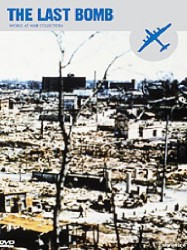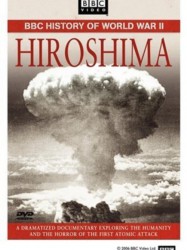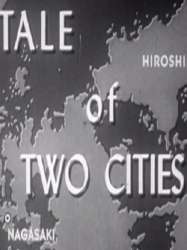Paul Jacobs and the Nuclear Gang est un film de genre Documentaire réalisé par Saul Landau avec Saul Landau
Paul Jacobs and the Nuclear Gang (1980)

Si vous aimez ce film, faites-le savoir !
Paul Jacobs and the Nuclear Gang is a 1980 political documentary film produced and directed by Jack Willis and Saul Landau, written by Jack Willis and Penny Bernstein, narrated by Penny Bernstein with cinematography by Zack Krieger and Haskell Wexler. Photographed by Sandi Sissel.
The focus of the film is the government cover-up of the health hazards related to the 1950s atomic bomb testing in Nevada. Paul Jacobs, a journalist, activist and co-founder of the magazine Mother Jones, investigated the results of the tests on unknowing civilians and soldiers used as guinea pigs. Jacobs died of lung cancer before the film was completed; his doctors believed he contracted cancer as a result of radiation exposure.
The film was shown on PBS in the United States and widely distributed on television and theatrically in Europe. It was censored by Swedish Television during the time of a referendum on nuclear energy in Sweden.
The film won an Emmy Award (1980), George Polk Award for investigative journalism on TV, Hugh M. Hefner First Amendment Award, and Best Documentary at the Mannheim Film Festival.
Acteurs

Saul Landau
(Self)
Commentaires
Postez un commentaire :
Suggestions de films similaires à Paul Jacobs and the Nuclear Gang
Il y a 0 films ayant les mêmes acteurs, 1 films avec le même réalisateur, 8968 ayant les mêmes genres cinématographiques, 8875 films qui ont les mêmes thèmes (dont 3 films qui ont les mêmes 8 thèmes que Paul Jacobs and the Nuclear Gang), pour avoir au final 70 suggestions de films similaires.Si vous avez aimé Paul Jacobs and the Nuclear Gang, vous aimerez sûrement les films similaires suivants :

Iranium (2011)
, 1hOrigine Etats-Unis
Genres Documentaire
Thèmes L'environnement, Documentaire sur l'environnement, Documentaire sur la guerre, Documentaire historique, Documentaire sur le nucléaire, Documentaire sur la politique, Documentaire sur les technologies, Politique
Acteurs Shohreh Aghdashloo
Note46%






Targeting Iran (2013)
, 1h11Origine Etats-Unis
Genres Documentaire
Thèmes L'environnement, Documentaire sur l'environnement, Documentaire sur la guerre, Documentaire historique, Documentaire sur le nucléaire, Documentaire sur la politique, Documentaire sur les technologies, Politique

Countdown to Zero (2010)
, 1h30Origine Etats-Unis
Genres Documentaire
Thèmes L'environnement, Documentaire sur l'environnement, Documentaire sur la guerre, Documentaire historique, Documentaire sur le nucléaire, Documentaire sur la politique, Documentaire sur les technologies, Politique
Acteurs Gary Oldman
Note68%






The Atom Strikes! (1945)
, 31minutesOrigine Etats-Unis
Genres Guerre, Documentaire
Thèmes L'environnement, La mer, Transport, Aviation, Documentaire sur l'environnement, Documentaire sur la guerre, Documentaire historique, Documentaire sur le nucléaire, Documentaire sur les technologies, Politique, Documentaire sur la Seconde Guerre mondiale
Note58%






The Last Bomb (1945)
, 35minutesRéalisé par Frank Lloyd
Origine Etats-Unis
Genres Documentaire
Thèmes L'environnement, La mer, Transport, Aviation, Documentaire sur l'environnement, Documentaire sur la guerre, Documentaire historique, Documentaire sur le nucléaire, Documentaire sur les technologies, Politique, Documentaire sur la Seconde Guerre mondiale, Forces armées des États-Unis
Acteurs Reed Hadley, John Arthur Kennedy, James Seay, Don Taylor
Note63%





 , 1h26
, 1h26Origine Etats-Unis
Genres Guerre, Documentaire
Thèmes L'environnement, La mer, Transport, Aviation, Documentaire sur l'environnement, Documentaire sur la guerre, Documentaire historique, Documentaire sur le nucléaire, Documentaire sur les technologies, Politique, Documentaire sur la Seconde Guerre mondiale
Note81%





Les victimes d'Hiroshima et Nagasaki racontent. Les bourreaux aussi.

Hiroshima (2005)
, 1h29Origine Royaume-uni
Genres Drame, Documentaire
Thèmes L'environnement, La mer, Transport, Aviation, Documentaire sur l'environnement, Documentaire sur la guerre, Documentaire historique, Documentaire sur le nucléaire, Documentaire sur les technologies, Politique, Documentaire sur la Seconde Guerre mondiale
Acteurs John Hurt, Ed Bishop, Katsumi Chō, Naoko Mori, Ian Shaw, Shane Rimmer
Note76%





À 8h15 précises ce 6 août 1945, le monde a changé. 40.000 personnes trouvent instantanément la mort, mais ce sont bien 200.000 décès qui seront provoqués par l´explosion de la première bombe nucléaire sur Hiroshima, au Japon. Ce documentaire exceptionnel de 90 minutes n´est pas « Un énième film anti-guerre » déclare son réalisateur Paul Wilmshurst, « mais bien l´analyse neutre et objective d´une décision cruciale. Il ne s´agit pas d´être pro-américain ou pro-japonais, j´ai simplement voulu raconter la vérité. » Une vérité technologique, scientifique, militaire et politique qui se dessine dans les trois semaines précédant l´attaque, alors que le premier essai nucléaire vient de se dérouler dans le désert du Nouveau-Mexique, aux États-Unis. Le spectateur se retrouve alors dans la pièce où est prise la décision ultime, à bord de l´Enola Gay pendant son trajet fatidique, à l´intérieur de la bombe au moment de l´explosion, puis dans les rues dévastées d´Hiroshima.

The Fog of War (2003)
, 1h35Réalisé par Errol Morris
Origine Etats-Unis
Genres Guerre, Documentaire, Historique
Thèmes L'environnement, Documentaire sur l'environnement, Documentaire sur la guerre, Documentaire historique, Documentaire sur le nucléaire, Documentaire sur les technologies, Politique
Acteurs Errol Morris
Note80%





Sont principalement évoqués son rôle pendant la Seconde Guerre mondiale, l'accession au pouvoir du président Kennedy puis la crise des missiles de Cuba, et le déploiement de l'armée américaine au Vietnam.

Bombes à retardement (2007)
, 46minutesRéalisé par Guylaine Maroist
Origine Canada
Genres Documentaire
Thèmes L'environnement, Politique, Documentaire sur l'environnement, Documentaire sur la guerre, Documentaire historique, Documentaire sur le nucléaire, Documentaire sur une personnalité, Documentaire sur la santé, Documentaire sur les technologies, Politique
Acteurs Vlasta Vrána, Réal Bossé
En 1957, 40 jeunes soldats canadiens sont envoyés au Nevada pour servir de cobayes humains. Ils seront exposés à des explosions nucléaires quatre fois plus puissantes que celle d'Hiroshima, et cela à moins de 1 000 mètres. Ces hommes seront victimes de radiations et certains de leurs enfants naîtront avec des malformations. Bombes à retardement révèle une page sombre de l'histoire militaire au Canada. Basé sur des films d'archives inédits, ce film fait revivre l'expérience des soldats qui sont suivis 50 ans plus tard dans leur quête de justice auprès du gouvernement canadien.

Tale of Two Cities (1946)
, 12minutesOrigine Etats-Unis
Genres Documentaire
Thèmes L'environnement, La mer, Transport, Aviation, Documentaire sur l'environnement, Documentaire sur la guerre, Documentaire historique, Documentaire sur le nucléaire, Documentaire sur les technologies, Politique, Documentaire sur la Seconde Guerre mondiale
 Connexion
Connexion